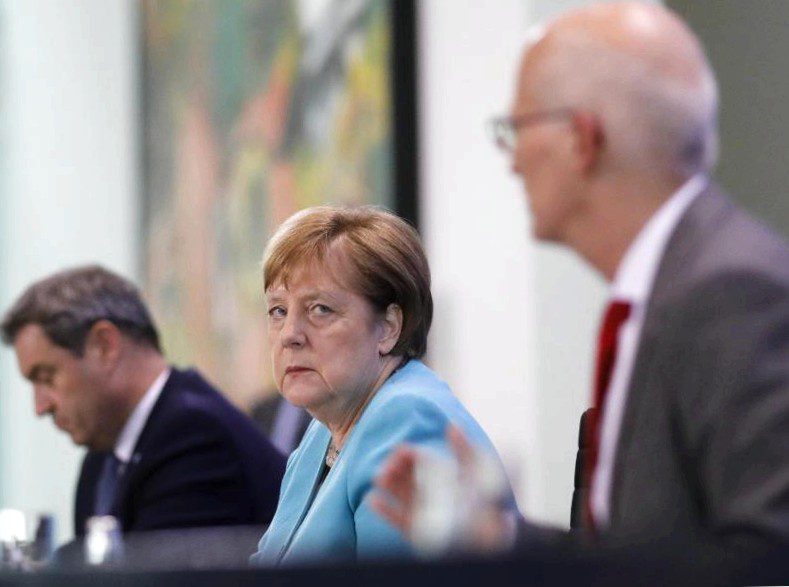
After weeks of dispute, the federal and state governments have again agreed on a joint basic strategy for further containment of the corona pandemic.
The compromise reached in berlin on wednesday continues to rely in particular on the nationwide continuation of the minimum distance of 1.5 meters, stronger hygiene measures and the wearing of mouth and nose coverings in certain areas. In the event of a positive course of infection, however, it also envisages the return of schools to regular operation by no later than after the summer vacations, and relaxes the ban on coarse events through conceivable exceptions.
"That’s the core," said merkel after the end of the minister-presidents’ conference. At present, outbreaks are occurring in areas where the distance rules are not being observed. "As long as there is no drug, as long as there is no vaccine, we have to live with the pandemic."One day after the start of the corona warning app, she also drew a positive first balance: it was "a very good start, which of course still has to be consolidated". The app, which has been downloaded about seven million times so far, is "a milestone in the corona fight". At the same time, she explained that she was not currently concerned about a possible second wave of infections.
For the first time since march, the heads of government of the federal government and the federal states met again for a presidential meeting in berlin. Bavaria’s minister-president markus soder (CSU), who is also currently chairman of the minister-presidents’ conference, praised the good collaboration. It is of "important significance" that all countries continue to support the basic philosophy, he said. Further: "it unites us that it does not go without reason. Facilitation yes, but with prudence and head." the basic rules to the contact restrictions had to be further valid for the next months.
Hamburg’s mayor, peter tschentscher (SPD), also warned against a false sense of security: the low number of new corona infections "must not lead us to make the mistake of taking things less seriously," he said. "We must continue to steer very, very carefully through this pandemic."
Like merkel, tschentscher also praised the fact that the federal government and the states had also reached agreement on the economic stimulus package drawn up by the union and the SPD to kick-start the economy after the corona crisis. The package is worth 130 billion euros. It is to bring the citizens for instance by a temporary value added tax reduction again into consumption mood and to contribute thereby to the recovery of the economy. In contrast, the minister presidents and merkel have not yet been able to reach an agreement in the dispute over funding for the expansion of all-day elementary schools.
The corona decision also stipulates that wherever regional dynamics in infection occur with more than 50 new infections per 100.000 inhabitants in seven days, more extensive contact restrictions can be imposed. This is how a supraregional infection is to be prevented. On the other hand, if the number of cases is low, further relaxation is possible.
In addition, the capacity for targeted testing, especially in facilities with particularly susceptible groups of people, is to be expanded. However, citizens are still required to keep their contacts with other persons to a minimum. This has recently been called into question following the drifting apart of the individual rules of the states.
Furthermore, because of the drop in the number of infections in recent weeks, the countries are aiming to start regular school operations at the latest after the summer vacations. There should also be a timely return from emergency care to the fullest possible operation of childcare services.
The ban on large-scale events, which is to remain in force until the end of august, is to be extended in principle until at least the end of october, but the agreement also provides for the possibility of exceptions. The ban applies to events "where contact tracing and compliance with hygiene regulations is not possible".
On 12. March was the last time merkel and the heads of state met in person at the chancellor’s office. After that, public life in germany was shut down because of the pandemic: schools and daycare centers were closed, as were restaurants, bars and other facilities. Since then, the chancellor and the prime ministers had discussed in video links how to proceed in the corona pandemic.
The course of the federal government and the countries in the pandemic had drifted apart since the beginning of may. While bavaria, for example, has chosen an emphatically slow course with relaxations, other states such as thuringia, with significantly fewer cases, are printing very much on the tempo. In saxony they already thought about an end of the compulsory wearing of masks while shopping.